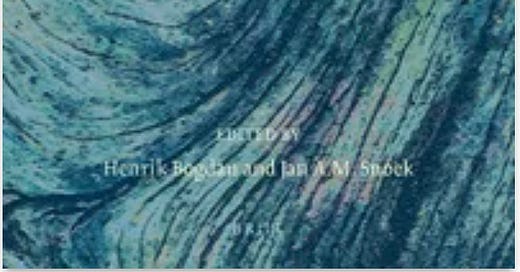How Freemasonry Influences Protestantism
The topics briefly touched on below are so important and extensive that I would have to write a whole book about them. In the Handbook of Freemasonry, there is a chapter on the relationship between Protestantism and Freemasonry. I quoted a passage from this source on 26 January and will do so again today.
In theologically conservative Christian communities, the revival movements of the past are often spoken of with great admiration. There is often a fervent desire for another revival today. What is usually overlooked, however, is that 'revivalist' Christianity was heavily influenced by the mysticism of Freemasonry and Pietism. Some of the consequences were far from positive. One such effect was the spread of theological liberalism.
The influence of Freemasonry led to a second trend within Protestantism. It was no longer the preaching of the Gospel that was at the forefront of the Protestant Church's activities, but the promotion of social services. In our time this situation has developed to the extent that the focus of the church's activities is now on transforming society.
Ps. 135:13-18: 13 Your name, O Lord, is everlasting, your [remembrance, O Lord, throughout all generations. 14 For the Lord will judge His people and will have compassion on His servants. 15 The idols of the nations are but silver and gold, the work of man’s hands. 16 They have mouths, but they do not speak; they have eyes, but they do not see; 17 They have ears, but they do not hear, nor is there any breath at all in their mouths. 18 Those who make them will be like them, yes, everyone who trusts in them.
NASB 1995
---
Handbook of Freemasonr
Brill Handbooks on Contemporary Religion, Volume: 8
E-Book ISBN: 9789004273122
Publisher: Brill Print, published 1 January 2014
Protestantism and Freemasonry have thus from the eighteenth century onwards been closely connected, be it in a different way in different contexts. [...] As orthodox Protestant masons were adopting the revival movement at the beginning of the nineteenth century, at the end of the nineteenth century the relationship between Freemasonry and Protestantism changed and some French liberal Protestant masons left the Church to go into politics, while others e.g. in France the Netherlands and Belgium, created new liberal free Churches. Some continental masons held also that Christianity was a corruption of monotheism. In Belgium (1872) and France (1877) this change in masonic spirituality resulted in the suppression of the expression “the Great Architect of the Universe”, in the name of freedom of conscience. To understand this fact, it is important to note that in this period very often there was no sharp distinction between being in and outside the Protestant Church. Whether a pastor could remain in his Church or not and whether he was still tolerated, depended on many factors. A number of Protestants considered in these years that Protestantism prevented consistent secular thinking, while it gave the possibility to reduce religion to the extent that one could use Church rituals, without being obliged to accept the mythic-religious character of religion. In this context, masonic lodges helped to set up philanthropic actions in the Protestant Churches. This philanthropy […] was an important vector in the relation between Protestantism and Freemasonry.
> Subscribe to the Court Jester Mailing
> Legal




